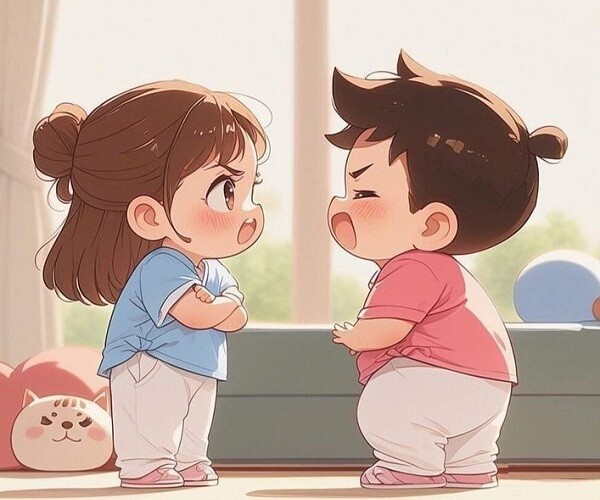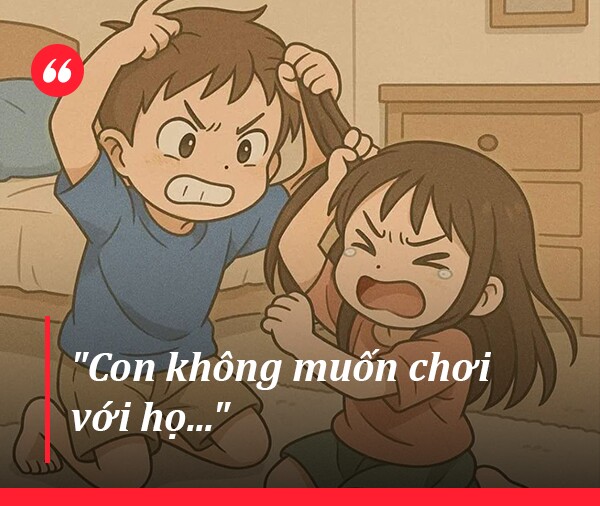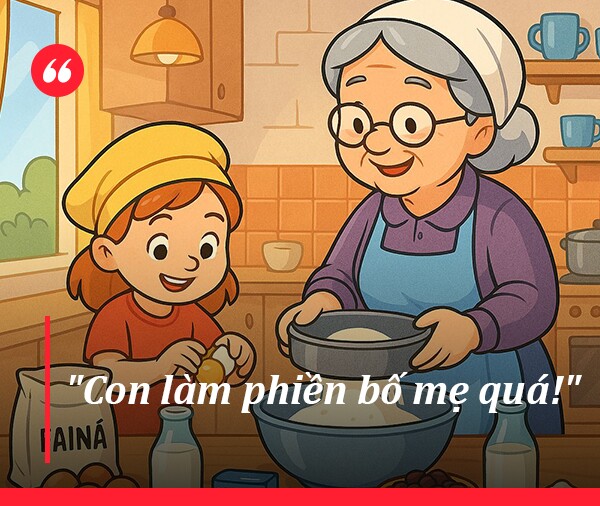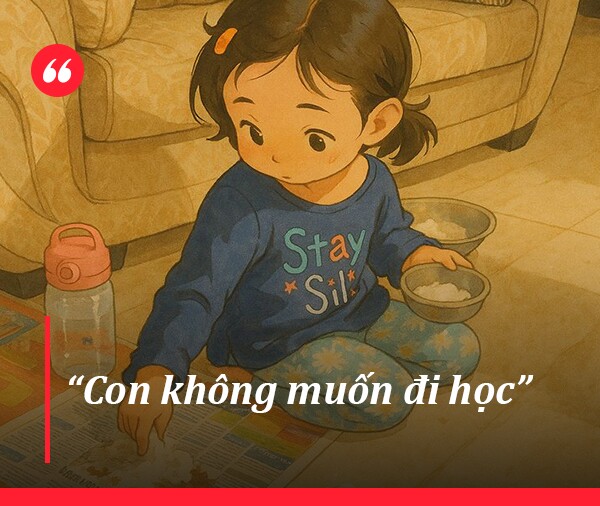Children’s words often carry hidden meanings, especially when they intentionally or unintentionally repeat certain words or phrases that may seem nonsensical. As parents, it’s important to pay attention as they may be trying to tell you something about their needs and psychological state.


“I don’t want to play with them”
A child’s peer group is an important environment for personal development and social integration. Research has shown that friends have a significant influence on a child’s behavior, attitudes, and values.
Child psychologist Jean Piaget noted that “interaction with peers is a crucial source of cognitive development, learning empathy, and social rules.” When a child says they don’t want to play with others, parents should pay attention to whether the child is being isolated or displaying unusual behaviors, or having difficulty fitting in.
In such cases, parents should intervene and help the child integrate into the group. For example, teach them how to be polite, resolve conflicts, and set an example by showing the joy of sharing.


“I’m such a bother to you”
When a child says, “I’m such a bother to you,” they are actually testing your authority. In many cultures, the relationship between generations carries a certain power dynamic and respect for elders, especially in traditional Vietnamese families.
In some households, parents do not allow their children to disobey them. However, before children develop self-awareness, it is common for them to express their frustration through statements like “I’m such a bother,” “I hate you,” or “It’s all your fault.” Instead of getting angry, reflect on whether you may be putting too much pressure on your child or restricting their independence.
The goal of parenting is to raise independent individuals. As Maria Montessori said, “Respect the child’s independence… Allow him by his own efforts to develop the original and distinguishing characteristics of his personality.” Guidance and space for healthy development are key.


“This is so boring!”
Children are naturally curious, but if your child frequently expresses boredom or a lack of interest in their toys, it may be a cause for concern. They may be experiencing emotional issues such as stress, unhappiness, or feelings of neglect, leading to a sense of meaninglessness.
Children’s happiness can be found in simple things like running and playing with friends, observing insects, or listening to stories. If your child is no longer interested in these things, their “happiness switch” may have turned off.
In this case, try introducing new activities or simply play with them to help reignite their joy for life.


“I’m so bad at everything!”
If your child frequently expresses self-doubt, such as “I can’t do anything right” or “I’m so stupid,” it’s a sign that they are losing confidence. A child’s self-esteem is fragile, and constant criticism or a lack of recognition can lead to feelings of worthlessness.
For example, if a child does poorly on a test and a parent says, “Why are you so careless?” the child may internalize the message, “I’m stupid.” However, if the parent says, “You made a mistake, but we can do better next time,” the child will think, “I still have a chance to improve.”
Therefore, it’s important to praise their efforts, help them find their strengths, and teach them that failure is okay as long as they are willing to try.


“I don’t want to go to school”
When a child says, “I don’t want to go to school,” parents often assume they are being lazy. However, there could be various reasons for this sentiment, such as difficult homework, bullying, or scolding from teachers.
For children, school is not just a place of learning but also a microcosm of society. If a child is unhappy at school, forcing them to attend will only increase their resistance. It’s crucial to find out the real reason behind their reluctance to go to school.
Parents need to be patient, listen without judgment, and create a safe space for their child to express their worries and emotions. Ask open-ended questions to encourage sharing rather than giving advice or criticism. This helps build a strong relationship where the child feels understood and supported, making it easier for them to face challenges at school.































